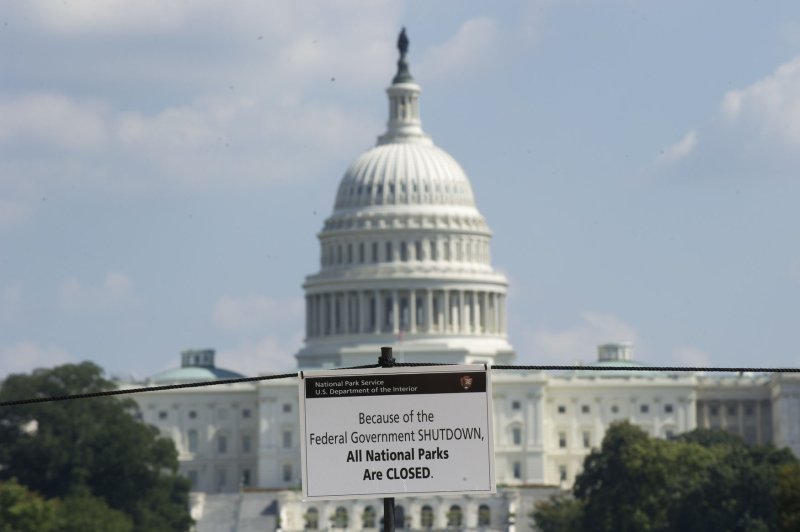The first session of the 113th Congress is in the running for the least productive in history, enacting just 60 laws. UPI/Kevin Dietsch |
License Photo
If you have a persistent feeling that, despite the speeches and posturing and pledges of working for the American people, Congress really hasn't done a whole lot, well, you'd be right.
Whatever happens in the waning days of the first session of the 113th Congress, remembering it for all the bills enacted isn't in the cards. The Washington Post's review of congressional records indicated fewer than 60 public laws were enacted in the first 11 months of this year, prompting officials to declare this first session the least productive.
Ever.
In 1995, when the new GOP congressional majority squared off against President Bill Clinton's administration, 88 laws were enacted, a record low in the post-World War II era.
Addressing criticism of the 2013 version of the do-nothing Congress, Boehner said during a floor session last week the Republican-led House passed nearly 150 bills that would boost job creation -- but they were blocked by the Democrat-controlled Senate.
Boehner said House Republicans passed bills to ease federal regulations, promote more energy independence, ratchet back or eliminate the Affordable Care Act, reform job training programs, boost protection from cyberattacks and help schools recruit and retain good teachers, the Hill reported.
"Every single one of these bills [has] been blocked by Washington Democrats," Boehner said. "The Senate and the president continue to stand in the way of the people's priorities."
In an interview with MSNBC, Obama countered most of the blame rests with Republicans, whom he said should be "embarrassed" by the low law production.
"[The] truth of the matter is they've now been in charge of the House of Representatives -- one branch or one chamber in one branch of government -- for a couple of years now. They just don't have a lot to show for it," Obama said.
To those who chalk it up to divided government, it should be noted that when Democrats controlled Capitol Hill and Republican Ronald Reagan occupied 1600 Pennsylvania Ave. during the 100th Congress (1987-89), more than 700 laws were produced.
Even during the 112th Congress, among the least productive in modern history, with Democrats in the White House and the Senate and Republicans controlling the House, 283 laws were produced during its two-year tenure.
When asked in November about the dearth of legislation that passed Congress, Boehner said the GOP was most proud of thwarting tougher regulations on business and blocking efforts by Obama to push a liberal agenda on the country, the Post reported.
"Listen," Boehner said, "we have a very divided country and we have a very divided government. And I'm not going to sit here and underestimate the difficulty in finding the common ground, because there's not as much common ground here as there used to be."
It was this divisiveness and dysfunction that led Senate Majority Leader Harry Reid to break precedent and change rules regarding presidential nominations so a simple majority could advance a confirmation to a final vote on most nominees. Asked during an interview on public radio if his decision could lead to getting less done, Reid said, "More dysfunction? I mean, gee whiz."
The divisiveness on Capitol Hill isn't just interparty or inter-chamber -- it sometimes is intraparty. More than once during this congressional session, House leaders had to pull legislation -- a transportation funding measure and a mini-spending resolution among them -- from the floor because it wouldn't pass with a majority of Republican votes, something the vocal hard-right wing insists is necessary before a bill be brought to the floor.
Some conservatives have argued it isn't the quantity of bills passed that should measure productivity but the fact that the Republican House has served an important function by blocking Democratic policies, the Hill said.
Even Boehner in July said Congress should not be judged by how many laws it creates, but by how many it repeals.
"We ought to be judged on how many laws that we repeal. We've got more laws than the administration could ever enforce. And so we don't do commemorative bills on the floor," Boehner said during an interview with CBS News. "We don't do all that nonsense. We deal with what the American people want us to deal with. Unpopular? Yes. Why? We're in a divided government. We're fighting for what we believe in. Sometimes, you know, the American people don't like this mess."















